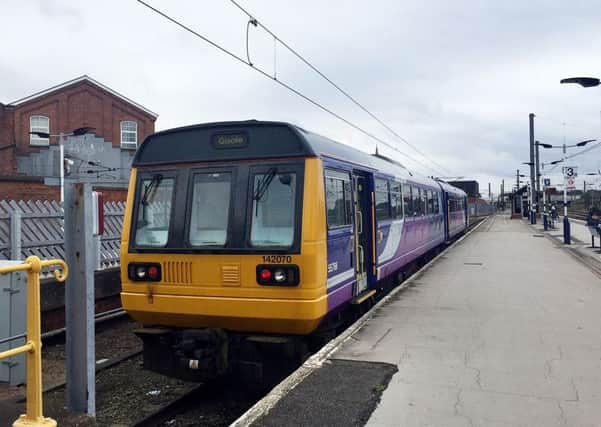'˜Sustained' investment needed in region's railway network


Industry body the Rail Delivery Group (RDG) estimates that the overall number of carriages across the country is going to increase by 22 per cent by 2021, with an extra 6,400 services to operate each week.
It has analysed investment commitments from rail operators around the UK - including TransPennine Express, Northern and Hull Trains in Yorkshire - and says long-term plans within the sector will “transform” journeys.
Advertisement
Hide AdAdvertisement
Hide AdBut critics have warned of the danger of “repackaging” old announcements, after analysis by the Yorkshire Post showed that all of the investment in the region had previously been announced.
They include 98 new trains comprising of 286 carriages at Northern - first announced in April 2016 - that will begin to be introduced from December; and a £60m investment at Hull Trains to deliver five new hybrid intercity trains, each made up of five carriages, by 2019 - first announced in November 2016. The £230m investment at TransPennine Express, in 13 five-car sets of locomotive-hauled carriages, 12 five-car electric trains and 19 five-car hybrid trains, was originally announced in May 2016 and will see the new stock introduced by December next year.
Ed Cox, director of think-tank IPPR North, said: “Northern commuters will welcome the introduction of new rolling stock and the replacement of some of our worst trains but everybody knows that our rail system needs significant, sustained investment across all aspects of the transport system.
“As the Department for Transport is learning, repackaging old announcements and fiddling with the figures is no substitute for new investment and devolved decision-making.”
Advertisement
Hide AdAdvertisement
Hide AdThe RDG said new carriages across the UK are part a long-term plan by rail companies to commit to improving customer satisfaction and represent an investment £13.8bn by the private sector. The body said its long-term rolling stock strategy, published later this spring, will say that the total number of carriages running on Britain’s railway is estimated to increase from 13,000 to 15,900 – a rise of 22 per cent.
The new carriages will mean the retirement of some of the oldest trains on the network - including some as old as 42 years on the Caledonian Sleeper service - and pacer trains dating back to the 1980s that are still is use in the north. They are being replaced by 281 new carriages featuring wi-fi, power sockets and digital information screens.
By 2021 a total of 7,033 carriages are set to have been introduced since 2016.
RDG chief executive Paul Plummer said: “With thousands of new, state-of-the-art carriages coming on track over the next three years, the partnership railway’s long-term plan is transforming journeys up and down the country.
Advertisement
Hide AdAdvertisement
Hide Ad“These new carriages will enable rail companies to work together to deliver on their commitment of at least 6,400 extra services a week, better connecting communities and helping to boost local economies from Aberdeen all the way to Penzance.”
Campaign for Better Transport chief executive Stephen Joseph said he hoped the new carriages will reduce overcrowding on busy lines.
“Passengers are paying ever higher fares and expect better trains for their money,” he added.